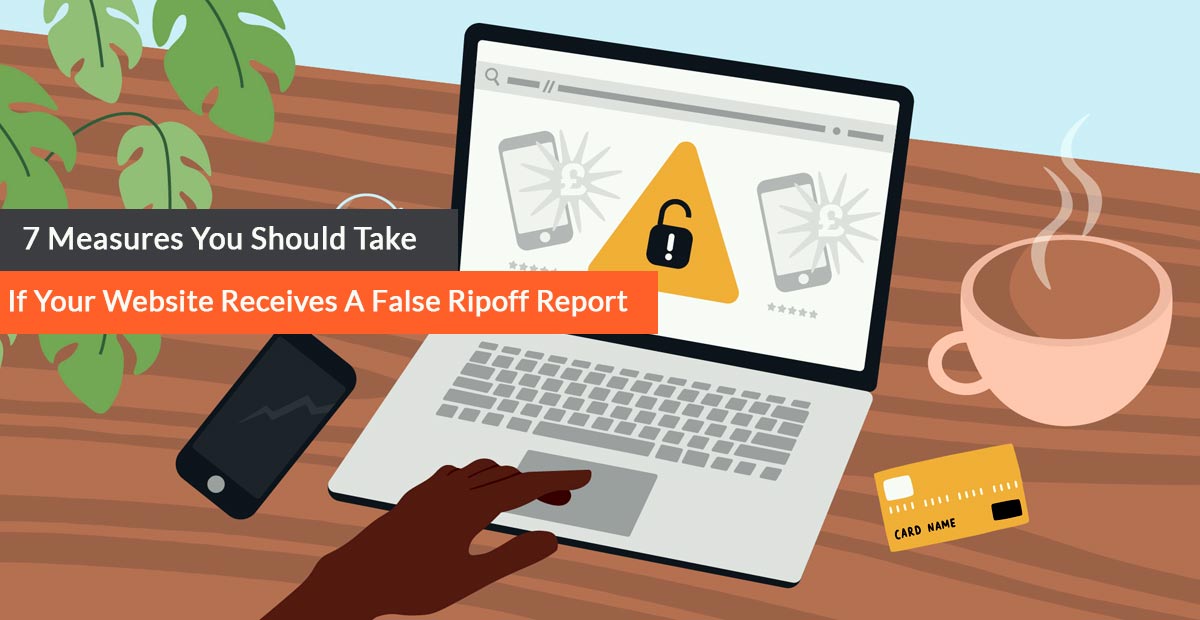
Receiving a false ripoff report can be absolutely devastating to your business, especially if it’s left unresolved. If you notice that you’ve received one of these reports, take action right away to get it removed from search engines and other sites that are promoting it! These are 7 measures you should take if your website receives a false ripoff report.
1) Understand The Risks
Every business is vulnerable to fake or malicious reviews. Whether you’re just starting or you’ve been in business for years, it pays to understand the risks. It may be easier than you think to get your website blacklisted by Ripoff Report, but there are some things you can do to lower your chances of receiving a false report. You should properly follow expert advice and follow some proactive steps to prevent websites from getting blacklisted and ensure they won’t receive any further false reports.
2) Investigate
An easy way to do a quick test is to enter your domain name into various search engines. If you see numerous results from forums or blogs warning people about your website, you may have a problem. Look at what they’re saying and take action accordingly. In some cases, if it’s clear that a report is false, you can address it directly with Google by filing an appeal for reconsideration. Or, if it seems like Google isn’t likely to take down the page—it looks like it was created by someone else—you can try contacting whoever owns that website and asking them to remove their content and/or link to you again in a more positive light.
3) Gather Evidence
So you know a false ripoff report has been filed against your website. Now what? First, take screenshots of each page that is being reported. It’s important to do all of your research up front and make sure you have a strong case before reaching out to Google because there is a chance they may not remove it from their search results. After collecting evidence, make sure to file a rebuttal statement with Google. In addition, you can simply take ripoff removal services from a reputed ORM service company in India.
4) Reach Out To Google
Often, a false report can have a devastating effect on your business’s online reputation. However, there are several things you can do proactively to monitor and respond when something like that happens. These include: manually searching for mentions of your business or product; setting up alerts; responding to reviews; monitoring Google Alerts on keywords related to your business (for instance, Company XYZ or Product ABC); monitoring Twitter for mentions of your brand; monitoring forums where people talk about your product or service and using tools like Mention or Google Alerts. At some point, you may even want to hire someone who will manage these things while you’re busy with other parts of your company.
5) Be Proactive About Monitoring
When your reputation is under fire, it’s easy to focus on responding to those who posted negative reviews. What you should do instead is focus on monitoring sites where potential customers might post negative reviews. Do a search of your business name and competitor names on Google Alerts or another online reputation management service, and set up alerts for mentions of your business on review websites like Yelp and TripAdvisor. And don’t forget to monitor social media: While you may not be able to control what others say about you (or your brand), there are some things you can do to respond quickly when false information starts spreading online. So stay proactive about monitoring!
6) Join Forums
Forums are a great way to learn more about Ripoff Reports and what you can do to fix them. Many forums allow you to ask questions and get direct feedback from other users who have faced similar problems. Getting involved with online communities like these is an excellent idea—you’ll get lots of free advice on how to handle ripoff reports, along with other topics related to running your business. Be careful, though; you’ll also need to deal with people who don’t know anything but will claim that they do. Learn how to sort through what’s useful and what isn’t—and be prepared for some difficult discussions.
7) Build Relationships With Influencers
Recently, we wrote about why customer reviews and testimonials are important for your site. Customer feedback is a form of social proof that reassures prospects that others have been satisfied with your products and services. In our previous post, we explored five ways to collect customer feedback to promote trust and conversion on your site. Our suggestions include obtaining feedback from customers via email surveys or encouraging customers to leave product reviews on sites like Amazon or Angie’s List. But what happens if a customer leaves a bad review? It’s normal for a small percentage of customers to be unhappy with a purchase—but if these unhappy customers decide to take their business elsewhere by posting false reviews on third-party sites, you should have a plan in place before it reaches that point.
 (800)-243-0593
(800)-243-0593 